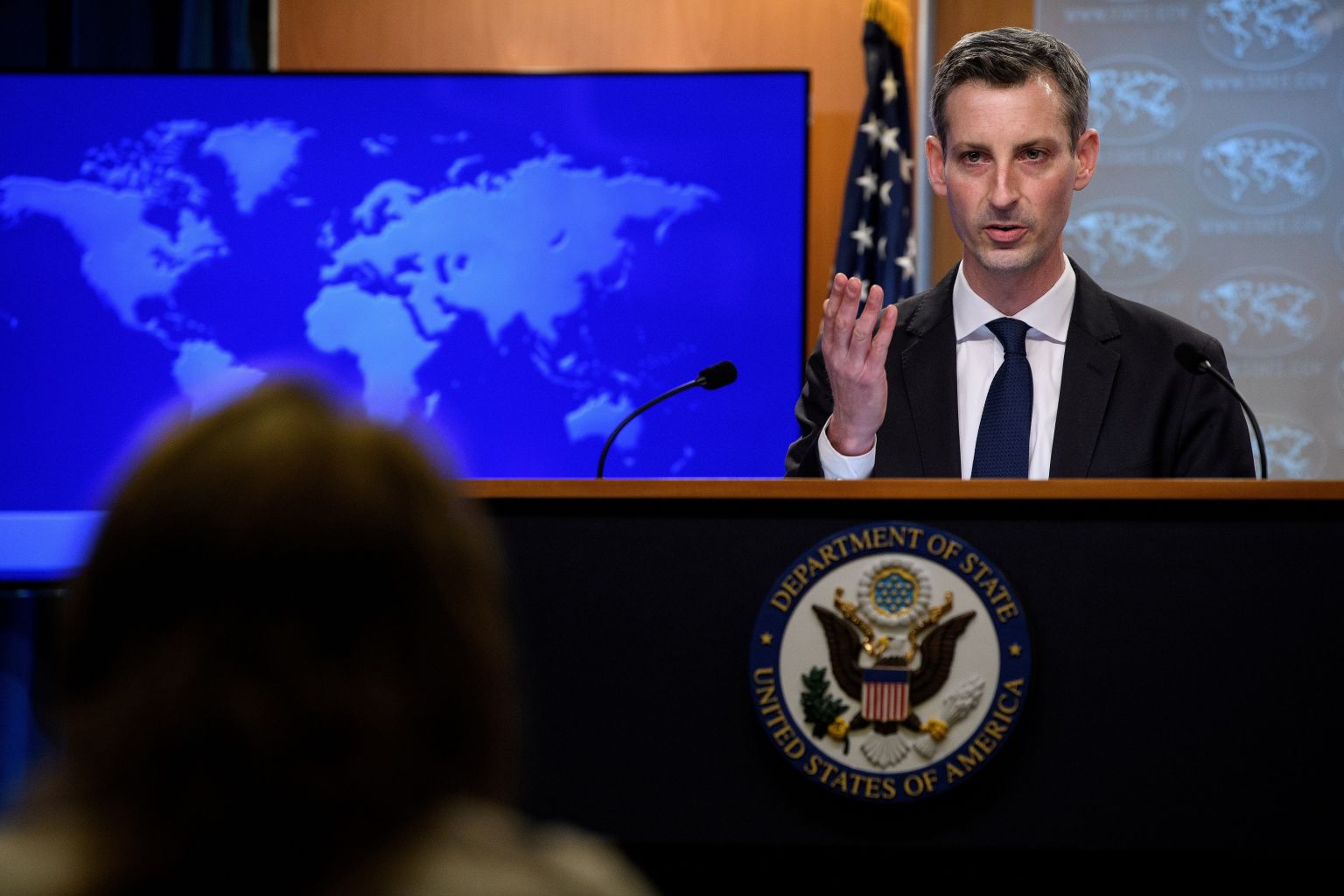US eases limits on Taiwan meetings as China tensions climb
Sign up now: Get insights on Asia's fast-moving developments

The aim of the guidelines, said State Department spokesman Ned Price (above) was “to encourage US government engagement with Taiwan that reflects our deepening unofficial relationship.”
PHOTO: REUTERS
WASHINGTON (BLOOMBERG) - The Biden administration is easing limits on contacts with Taiwanese officials, the State Department said on Friday (April 9), as the US looks to counter what it sees as increasing encroachment by China on the island's sovereignty.
The new State Department guidance "underscores Taiwan is a vibrant democracy and an important security and economic partner that is also a force for good in the international community," spokesman Ned Price said.
He said the new rules "liberalise contacts with Taiwan, consistent with our unofficial relations."
The move is designed to help restore some semblance of order to ties between the US and Taiwan, which China claims as its own territory but which has governed itself since 1949. In the waning days of the Trump administration, then-secretary of state Michael Pompeo eliminated the existing guidelines entirely, declaring them "null and void."
But that move created confusion as much as anything else, leaving officials unsure what was allowed and what wasn't, after decades in which contacts between the US and Taiwan were governed by rules of protocol that were part of a delicate dance aimed at avoiding antagonism with China while also allying the US with Taiwan's government.
In effect, Friday's move restores limits on contacts with Taiwanese officials that were removed by Pompeo in an effort to clear up confusion about protocol surrounding such meetings while also demonstrating new support for an important ally.
Friday's announcement comes as officials in the Biden administration worry that China's ruling Communist Party will turn its focus more intently on Taiwan after largely eliminating Hong Kong's independence movement over the last two years.
In a recent Senate hearing, Admiral John Aquilino, President Joe Biden's nominee to lead the US Indo-Pacific Command, said the "most dangerous concern" is the potential use of military force against Taiwan.
The latest move comes after US-China relations fell to their lowest in years as the Covid-19 pandemic prompted the Trump administration to ratchet up criticism of Beijing, overwhelming any goodwill created by the agreement of an initial trade accord in early 2020.
Beijing's increasingly tight grip over Hong Kong, its persecution of Muslim minorities in Xinjiang and its expansion of outposts in the South China Sea have prompted bipartisan criticism in the US. The recent global shortage of semiconductor chips has only served to heighten awareness of US dependence on companies such as Taiwan Semiconductor Manufacturing.
"Our restrictions on diplomacy with Taiwan are pointless, and were never agreed with Beijing," said Christian Whiton, a former State Department official in the Trump and George W. Bush administrations.
"They are self-imposed. We have had robust engagement with Iran and North Korea, and we don't have formal diplomatic relations with them. Why treat a democratic ally worse?"
The State Department did not detail ways in which the guidelines will be loosened.
An official familiar with the move said that US officials would be allowed to host Taiwanese officials at federal buildings and meet Taiwanese counterparts at its government offices. They will also be able to go to events at the Twin Oaks estate in Washington that was the Taiwan ambassador's residence before the US switched diplomatic recognition to China in 1979.
Under Trump, the US sent high-level officials to Taiwan, but it was Biden who broke past precedent by inviting Taiwan's representative in the US, Hsiao Bi-khim, to his inauguration in January. The US has also proceeded with numerous defence sales to Taiwan.
Earlier on Friday, the Taipei Times quoted Foreign Minister Joseph Wu as saying his government expected significant changes to the guidelines, which he said were constantly being reviewed.
"Without direct rules, the department would not know what to do," the Taipei Times cited Wu as saying, in reference to the State Department


